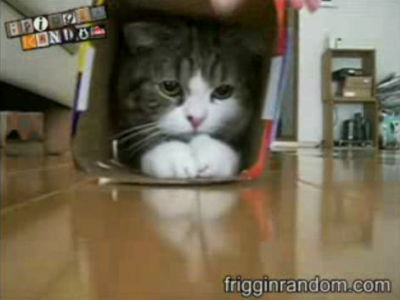Research results that calves have higher cognitive ability when raised in pairs than when raised alone

For ease of management, dairy cows that have just been born are sometimes raised separately from other cows. A study by the University of British Columbia investigated how isolation affects cows themselves.
Social Housing Improves Dairy Calves' Performance in Two Cognitive Tests | PLOS ONE
Previous studies with rats had found that individuals raised alone performed worse on tests of cognitive development than individuals raised in multiple groups.
Charlotte Guyard, an animal welfare researcher at the University of British Columbia, wondered whether cows, like rats, could benefit cognitively from being raised in groups early in life. do.
Mr. Guyard prepared several tests with 4- to 8-week-old calves. In the first test, one or two calves were placed in a maze, with a white box and a full milk bottle on one side and a black box and an empty milk bottle on the other side. Installation. Calves were made to circle the maze to see how long it took them to choose the white box. After that, the black and white were reversed and the test proceeded in the same way.

At first, both the calf that was placed in the maze alone and the calf that was placed in the maze with two calves learned well. It seems that it was confirmed that the learning performance of the calf that was in one head was worse.
In the graph below, the vertical axis shows the percentage of correct selection of the box containing the milk bottle, and the horizontal axis shows the number of times the test was performed. In addition, the upper graph shows the performance before reversing the white and black boxes, and the lower graph shows the performance after reversing. The black line represents the performance of two calves entered.

In a second test, an unfamiliar red box was placed in the enclosure, and the amount of time the calves held their heads close to the box and how long they were interested in the box, such as by smelling it, was measured. I was. In this test, it was found that the two calves took less time to get used to the crate.
From the first experiment, Guyard et al. pointed out that ``because they experienced social isolation early in life, they could not cope well with reversal learning, etc., and lacked flexibility in behavior.'' Regarding the second experiment, he considers that 'psychological conditions, such as increased anxiety, may have affected.'

From these two experiments, Mr. Guyard et al. ``It was suggested that one-by-one rearing impairs the cognitive ability of calves.In future experiments, it is necessary to examine the psychological state of obvious learning disabilities, such as We believe that we can investigate the effects by administering anti-anxiety drugs to the animals before the test, etc. Dairy cows are constantly in contact with new technologies such as robotic milking devices and automatic feeders, but they were raised in multiple groups. A highly flexible individual would be able to adapt quickly to such changes.'
Related Posts:







